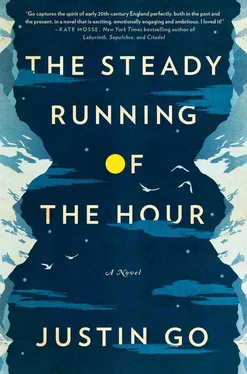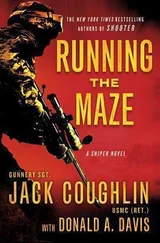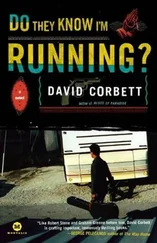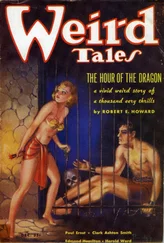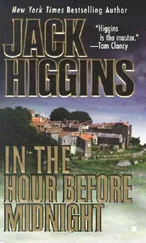I go back into the bedroom and look inside the boxes with the porcelain, unwrapping the newspaper to check the date. Tirsdag aften den 6 Mars 1919 . I pull everything from the box, the plates and linens, a dark cardboard portfolio with cloth ties. Inside the portfolio are receipts in Swedish and English: railway tickets, hotel receipts, folded grocers’ bills. The dates run from 1916 to 1919. One of the receipts is in French, the top printed MOISSE — Toiles & Tableaux et Couleurs — Encadrements—28, Rue Pigalle. There are columns for the order numbers, the designation des articles and the prices, but the handwriting is in a wild longhand that’s hard to read. I make out ocre jaune among the list of items. Another line says terre de Sienne . It must be a receipt for oil paints. I refold it and put it in my pocket to look at later.
I open the other box on the bed. A small silver pitcher wrapped in cloth, a set of pewter apostle spoons in a wooden case. Beneath these is a parcel wrapped in brown paper, about the size of a shoe box. I shine my light at the address on the front. C.T. Grafton, 58 Cartwright Gardens, London WC1, ENGLAND . There are no stamps and the box isn’t postmarked.
I tear off the paper. There is a tin inside, the lid stamped Green’s of Brighton: The House of Quality . I take off the lid. A blue booklet is at the top, and beneath this two tightly fitted bundles of letters, each secured with twine. The booklet’s cover reads The Geographical Journal, Vol. XLVII No. 5, May 1916. The Astrolabe and Wireless. Notes on the Alto Rio Branco, North Amazonas. The Position of Sir Ernest Shackleton’s Expedition . The booklet parts at the center to reveal a white notecard engraved The Langham Hotel, Portland Place, London W . The card is inscribed in brown ink.
24 Aug 1916
To my Darling —
That she will remember that I belong not to Flanders mud, nor to His Majesty’s Army, nor to God, nor yet even to myself, but instead am held as surely & as easily as a loving girl holds a lover’s note. For you shall hold this, and I shall come back to you.
A.
I flip the card over and over. My hands are shaking. I untie one of the bundles of letters. The envelopes are of plain stock or YMCAstationery, the paper brown and brittle. A few green envelopes are marked ACTIVE SERVICEwith printed instructions on the front. They are all addressed in blunt pencil.
Miss I. Soames-Andersson
Yarrow Cottage
Selsey
England
All of them have the same return address: A.E. Walsingham, 2/Lt., 1 Batt. Royal Berkshire Regt . I take the sheets from an envelope.
So we marched all night; if I tried to describe the cold or fatigue I should fail. The men hadn’t any consolation but to sing. And so they sang — endlessly, to the tune of ‘Auld Lang Syne’: ‘We’re here because we’re here, because we’re here, because we’re here.’
It was terrible at first, then beautiful, and finally terrible again. I shall not forget it.
I go to the next page and read to the end.
You are the source & measure of all good things; even in a pit so wretched as this I know my happiness comes from you.
When we come back into the dug-out after 18 hours crawling in frozen mud, and we have a cup of steaming tea & a tin of bully beef, I know what pleasure there is comes from you.
When at midnight watch the shelling ceases suddenly, for no more reason than it ever started, and the sky is incandescent with streaming flares — then I see some signature of the divine and, knowing there is no God, I know that signature is yours.
I did not need to see such cruelty as I have to know how I loved you, nor to know how rare & fragile the time we shared was.
But I have learnt something. We have words for places of utter bliss & utter agony; we call them heaven & hell, and place them in some distant domain, far beyond death. But this is mistaken. These are names we give to things that exist in this world and only here, and I have seen them share the same field.
Imogen, I care nothing for future salvation, nor for the prizes of this stumbling world. You were the wise one, wise to understand what we were when I hardly knew myself; wiser still to weep when I left, knowing the price we paid for my conceit. If this war tests men as men have never been tested, I survive only through you. And when we stand again together beneath the arch at All Saints, I shall have the only salvation I desire.
Yours Ever,
Ashley
My hands are still shaking. Again I get the feeling that someone is watching me. I go to the window and pull back the dusty curtains, peering into the dark woods. There’s no one outside. The sky is turning blue at the horizon.
I look through the rest of the boxes and check the closet again, but I don’t find anything else. I carry the tin downstairs and go outside, standing in the shimmering field in my shirtsleeves. A warm breeze passes through the trees.

20 August 1916
Cavendish Square
Marylebone, Central London
Ashley and Imogen do not find the latchkey, not in Regent’s Park or anywhere else. An hour after dawn they go to Imogen’s house and Ashley watches from the sidewalk on Cavendish Square as Imogen taps the ground-floor window until the housekeeper opens the door. A few minutes later the light goes on and off in the second-story window. Then Ashley knows she is all right.
He boards the 9:38 from Paddington and tries to sleep. But with fewer trains running all the time, the carriage is crowded and stuffy, and when Ashley closes his eyes he can think only of Imogen, replaying scenes from the night before with a surge of pleasure at each fresh memory. He does not know whether he trusts or mistrusts her, whether he understands her or knows less about her than any woman he’s ever spent an hour with, let alone a whole night. Had they really stayed out until dawn? And what had they said to each other in those smaller moments, the ones he was already forgetting? The train travels at half speed to save fuel and when Ashley reaches Didcot Station the only transport is an ancient hansom cab, the caped driver peering down from his sprung seat above the carriage.
— No motor taxis, sir, we haven’t the petrol. But I can take you as you please.
Ashley grins, stepping in through the twin front doors of the cab. When he reaches his mother’s house he pays the driver and claps the knocker on the door. He embraces his mother hurriedly.
— Awfully sorry, but I’m only dropping my bags. I’ll be back this afternoon. I need to take the motor back into town. Is it starting?
— But Ashley, his mother protests, you’ve just arrived.
He kisses her on the cheek.
— I’m having luncheon with Richards. You remember him, don’t you? Archaeologist chap from Magdalene. I shan’t be long—
Ashley meets Imogen at noon at Abingdon Station with the borrowed motorcar. She steps off the train and grasps his hand, whispering into his ear.
— The slowest train I ever took. I’ve a present for you, darling.
Imogen opens the clasp on her handbag and rummages through its contents, but the bag is so packed that she finally has to sit on a bench to the sift through the mess. There are tattered political leaflets and leather pocketbooks, celluloid safety pins and railway timetables; a small glass bottle of perfume, a wooden birdcall. At last Imogen pulls out an iron key triumphantly. Ashley shakes his head.
Читать дальше
